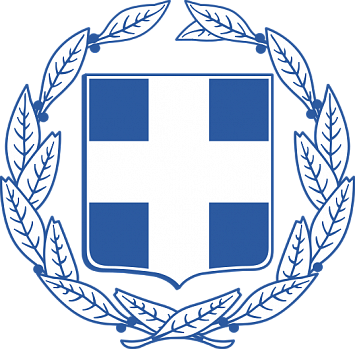 Die Hellenische Republik
Die Hellenische Republik
RIA NOVOSTI INTERVIEWS ALEXANDER YAKOVENKO, OFFICIAL SPOKESMAN OF RUSSIA'S MINISTRY OF FOREIGN AFFAIRS, ON AN UPCOMING VISIT BY YEORYIOS PAPANDREOU, MINISTER OF FOREIGN AFFAIRS OF GREECE
A visit to Russia by Yeoryios Papandreou, Greece's Minister of Foreign Affairs, has been announced for October 17. What is the goal of that visit?
- It will be a routine visit which follows an understanding made as Mr. Papandreou met with Igor Ivanov, Russia's Minister of Foreign Affairs, in New York City, September 14, during the 57th United Nations General Assembly.
The present visit by Yeoryios Papandreou has an importance all its own as Greece is coming up for the next six months as European Union chair country, starting January 1, 2003. That country is even now doing chair duties in many essential aspects of EU activities, such as unified security and defence policies, or the euro zone.
The upcoming foreign-ministerial conference, one of the many, is within an available practice of regular Russian-Greek opinion exchanges on topical international issues and bilateral partnership.
What topics will dominate Messrs. Ivanov and Papandreou's agenda?
- Greece is determined for constructive promotion of Russian partnership with the European Union. Considering that determination, we expect detailed discussions of the basic fields of our partnership in that sphere during Greece's EU chairmanship. We intend to emphasise efforts to update Russian-EU team efforts, and point out that Russian interests are to reckon with in the context of an upcoming EU expansion. That theme includes vital aspects of the Kaliningrad Region's situation.
As international problems come under discussion, we want to move into the foreground such issues as developments round Iraq, the Mideastern conflict, and European security-in particular, Balkan developments and Cyprus settlement.
An opinion exchange on promoting the United Nations' leading role in world affairs, maintenance of strategic stability, and joint efforts against international terrorism will be prominent at the negotiation table.
Will bilateral relations come under discussion?
- They will. Thus, we intend to debate practical aspects of bilateral partnership in many fields, including prospects of trade and other economic ties with the greatest attention to the energy sector. Bilateral trade has every chance to expand, with last year's turnover at US$1.2 billion. There is a persistent interest in further Russian natural gas exports to Greece, and in a tripartite Russian-Greek-Bulgarian project for a petroleum mainline to be laid from Burgas to Alexandroupolis. That project is being actively promoted. Greece is liberalising its energy market to offer greater chances for Russian economic presence in the Balkan area.








